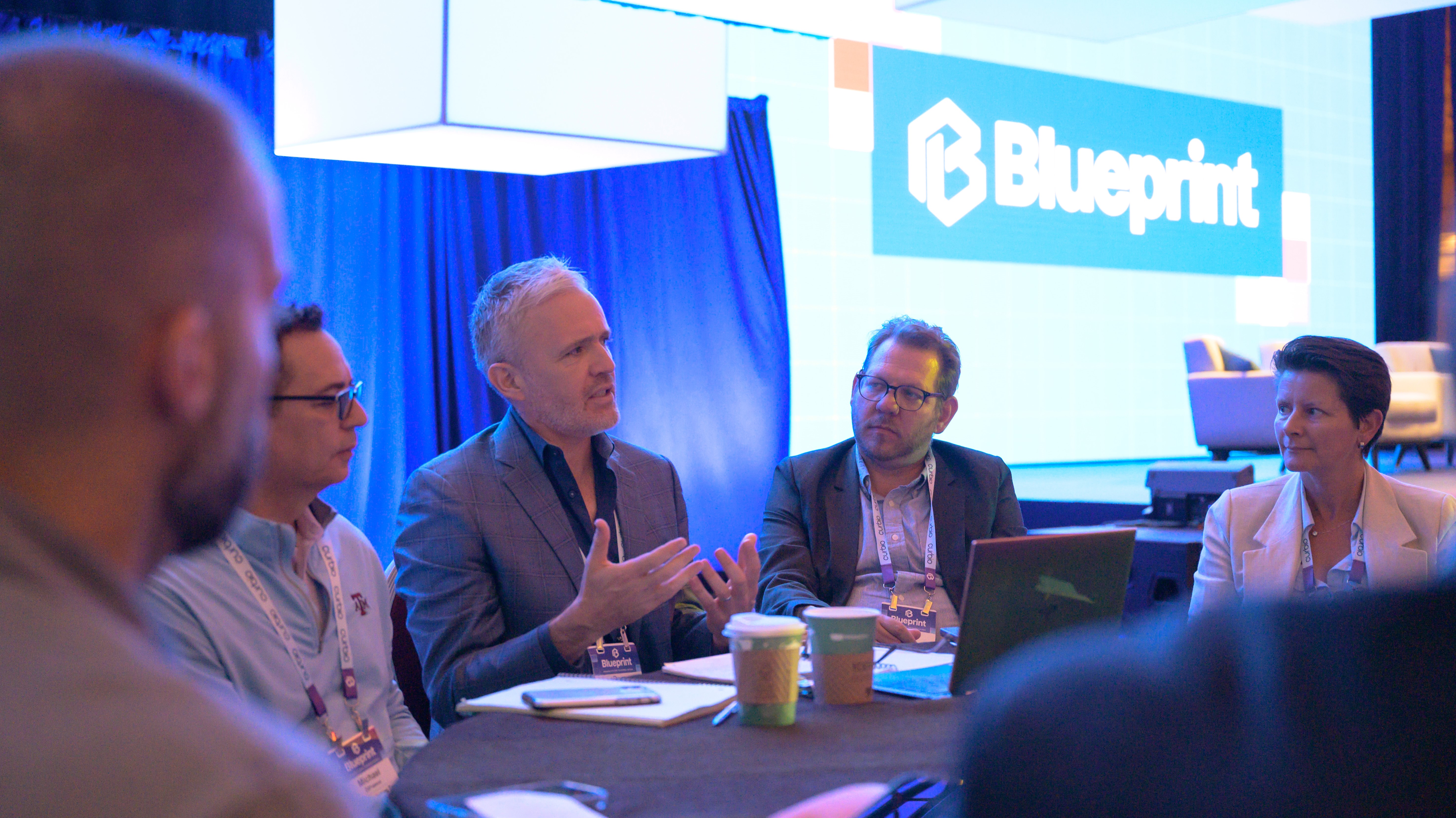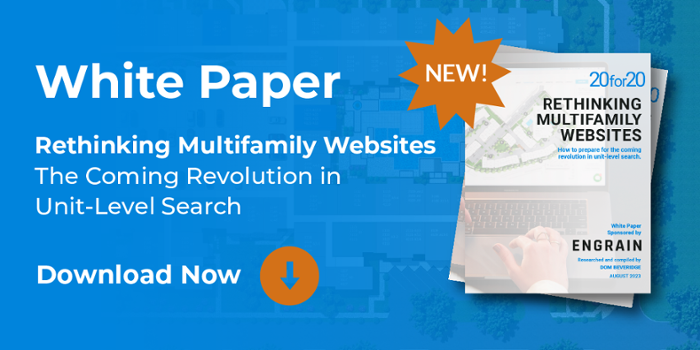
Conference season is in full swing. Last week saw Blueprint 2023 in Las Vegas, which brought together its own distinct audience, including a well-attended multifamily section, in which I got to participate. As I will share in this post, a fresh format facilitated some fresh perspectives on centralization.
The post-pandemic multifamily conference circuit continues to be fascinating. Back in the early stages of the COVID crisis, as events were canceled, companies looking to connect with customers and partners scrambled to replace the spontaneous meetings and interactions. When they figured it out, many wondered if we'd ever need to go back to in-person conferences again. In hindsight, those perspectives seem ridiculous: there are now more conferences than ever, and every one I have attended this year has a bigger and more energetic crowd than before.
That certainly applied to last week's Blueprint, a conference that has grown impressively over its three-year existence. It was packed with great content, conversations and a full complement of industry stakeholders. What seems to set Blueprint apart is its holistic treatment of technology: it takes an ecosystem perspective, bringing together operators, investors and tech companies of all shapes and sizes.
NMHC OPTECH, by contrast, has become the gold standard event for sellers and buyers of multifamily technology and gravitates towards the NMHC Top 50. Blueprint feels like a conference conceived in the current PropTech environment. As I have pointed out (repeatedly!) this year, the industry has been becoming less and less like the Top 50 over the last decade. Owners are, on average, smaller and more open to a variety of operating models. They increasingly invest in technology. They network and get their news through newer platforms. Blueprint displays a refreshing awareness of what's new in our industry.
Centralization for the rest of us
This year, I had the pleasure of leading another industry roundtable—my current favorite format for conference sessions. The session, entitled "Centralization for the Rest of Us," brought together a dozen owner-operators representing the full range of portfolio sizes and business models. Together, we explored a fresh perspective on the hot industry topic of centralization.
The premise of the session was that centralization means different meanings to different companies. The industry discussion is often dominated by large owner-operators who control their operating environments and enjoy the benefits of geographic density. However, most companies face different challenges and opportunities.
The discussion of companies' current centralization initiatives revealed some important differences in emphasis: most were not motivated by a desire to reduce headcounts (the narrative popularized by early-adopting REITs). The examples around the table were better characterized as solutions to specific operational challenges. For instance, one operator managing a large portfolio of relatively small buildings in concentrated in a couple of different cities had successfully implemented a centralized leasing some years ago.
With no on-site leasing teams, this business had deployed agents in something more like a broker role, moving freely from one property to another. Interestingly, the need for central control of agents had brought all leasing-related activities closer together. An inside sales team and centralized marketing reported to the same functional lead, enabling a more cohesive function than most multifamily operators.
One merchant builder highlighted different concerns: with lease-ups so central to their business and operational model, changes to leasing are inherently risky. In this environment, centralization focuses on improving the support for the on-site leasing teams rather than trying to replace them.
Property admin is the main story.
The "support" theme took center stage in the part of the discussion that focused on administrative functions. As this year's 20 for 20 paper highlighted, property admin functions are the ones being centralized the most rapidly by operators. Consistency was the theme that came through this part of the conversation.
One leader managing a portfolio of 28 properties spoke of the challenges of maintaining 28 slightly different operational approaches. Centralizing certain administrative tasks, even without reducing staff at the individual properties, had eliminated numerous errors and fostered consistency, thereby justifying the initiative.
Similar benefits came from centralizing renewals, a function varyingly classified as either administrative or leasing depending on the company. One large operator described how centralizing renewals had professionalized the negotiation process.
Traditionally, property-based leasing consultants, often relatively junior, handle renewals. It creates an asymmetric negotiation, as the resident is typically more senior in their career than the agent representing the operator. A better approach is to develop a smaller, centralized team of seasoned professionals specializing in renewal negotiations. This strategy yielded several benefits for the operator: it makes renewals more predictable, enhances conversions and generally aligns pricing more closely with the community's strategy.
There were many other examples, too many to share here, but as usual, the time flew by, and the 12 participants wished the discussion could have continued longer. Frankly, I don't understand why more conference organizers don't use this format; in my experience, they are the most insightful and revealing conversations at any event.
Formats like these may be one of the strengths of newer events in the circuit, like Blueprint (and RETCON earlier in the year). They are building their audiences in different ways and offer a different mix of attendees. They are open to experimenting with new formats and less beholden to the program development processes of the more established conferences. It is a breath of fresh air: Blueprint was a great success, and I can't wait for next year.



